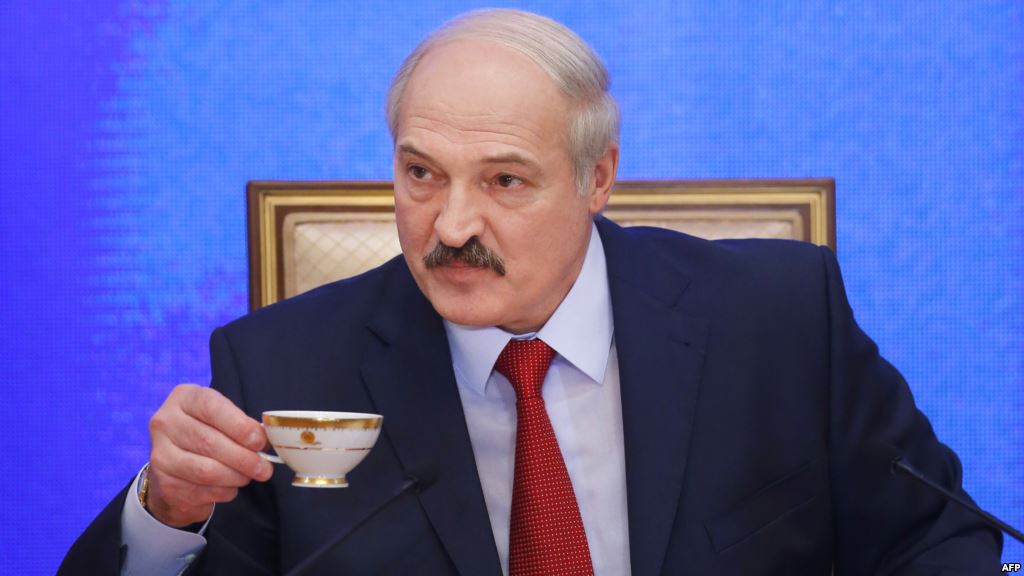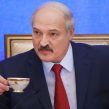
Bringing Belarus Back in From the Cold (Part Two)
Publication: Eurasia Daily Monitor Volume: 12 Issue: 109
By:

*To read Part One, please click here.
Its membership in the Russia-led Eurasian Economic Union (EEU) serves Belarus, to some extent, as a form of political insurance vis-à-vis Russia. This involves stable supplies of Russian oil and natural gas at discounted prices, anti-crisis and currency stabilization loans, theoretically free access of Belarusian products to quality-compatible Russian markets, and opportunities for Belarus to maintain direct economic ties with Russia’s regions.
This special economic relationship is a bilateral one, long pre-dating the launch of EEU, and continuing basically outside the Union’s multilateral framework. Yet the multilateral trade agreements, signed within this EEU, make it more difficult for Russia to impose discriminatory restrictions on Belarus for any political or mercantile considerations. Conversely, staying out of this multilateral format could have exposed Belarus to Russian retaliation in the bilateral relationship, economically and even politically.
On balance, the compelling factor for Belarus to join this Russian-led format is economic advantage, not coercion. Furthermore, Western ostracism of Belarus and withholding of financial assistance made it simply unthinkable for Minsk to stay out of the Eurasian Economic Union. The situation of Belarus differs entirely from that of Moldova, Georgia or Ukraine in this regard. A possible rapprochement with the West, which may now be dawning, would not affect Belarus’s interest and willingness to participate in the EEU. Yet, Minsk must carefully manage any rapprochement with the West so as to maintain stable relations with Russia at the same time. According to Foreign Affairs Minister Uadzimir Makei, recently in Moscow, the Belarusian government would oppose any putative attempt to turn the European Union’s Eastern Partnership initiative into an anti-Russian initiative (Belapan, June 8).
Within the Eurasian format, however, Belarus upholds its own national interests in terms of state sovereignty and open trade with non-member countries. Minsk’s positions diverge from Moscow’s on these issues. Thus, Belarus resists the introduction of a single currency or common currency in the EEU (see EDM, March 27; April 1). Furthermore, Belarus continues trading with Moldova, Georgia and Ukraine (indeed, seeking to increase trade with them), despite Russia’s restrictions on trade with these countries in recent years. Belarus and Kazakhstan share these positions within the EEU.
Looking ahead, Russia’s capacity to sustain the special economic relationship with Belarus in the accustomed way looks uncertain. Western sanctions on Russia and the slump of oil revenues—two factors of indeterminate duration—make it more difficult for Russia to provide Belarus with financial loans or preferential access to Russia’s market. Since last year, Moscow and Minsk have resorted to the traditional method of competitive devaluation of their respective currencies, seeking maximum advantage for either country’s producers at each other’s expense. Irrespective of those temporary factors, however (see above), Russia’s membership in the World Trade Organization (WTO) should, in due course, increase international competition for Russia’s market, making it more difficult for Belarusian products to compete there, except through expanded preferential arrangements in the Eurasian Economic Union.
Its economic reliance on Russia notwithstanding, Minsk has clearly distanced itself from Moscow’s positions on the conflicts in Europe’s East. On these and related issues, Belarusian President Alyaksandr Lukashenka has maintained a consistent (“principled”) attitude over the years. Following Russia’s 2008 war against Georgia, President Lukashenka successfully resisted Moscow’s demands for Belarus to “recognize” Abkhazia and South Ossetia. The Belarusian government opened its market to Moldovan wines and agricultural products after Russia had closed its market with a view to destabilizing Moldova.
Lukashenka and the Belarusian government treated Ukraine’s post-Maidan leadership as legitimate from the outset, unlike Russia, which rejected the Ukrainian leadership’s legitimacy outright in 2014, and continues questioning it even now. Lukashenka attended President Petro Poroshenko’s inauguration in Kyiv (May 2014) and proved fully receptive to US requests to continue trading with Ukraine, despite Russia’s restrictions on that trade. Following the introduction of Western sanctions on Russia over the ongoing war, Belarus has refused to join in Russia’s own counter-sanctions on the West. President Lukashenka not only declined to go to Moscow on the May 9 anniversary of the end of World War Two, but he hosted a US military marching band concert in Minsk and made welcoming remarks underscoring the symbolism of this event.
Lukashenka has spoken out repeatedly in favor of Ukraine’s territorial integrity. During 2014, he publicly and repeatedly criticized Kyiv for yielding the Crimean peninsula without resistance. Yet, in line with that view, Lukashenka holds that Kyiv has given up Crimea de facto. Minsk’s official position on this resorts to nuances. It does not recognize Russia’s annexation of Crimea, but it has nevertheless opposed condemnations of Russia’s “illegal annexation of Crimea” in the United Nations General Assembly as well as in the EU Eastern Partnership’s summit declaration in Riga (BNS, May 20–22).




